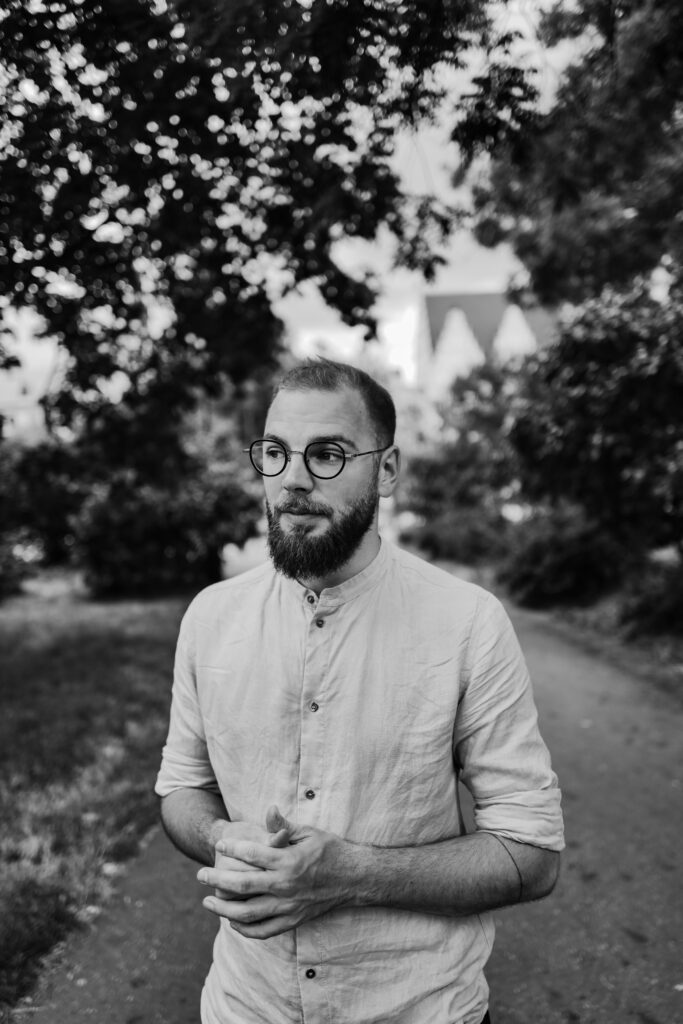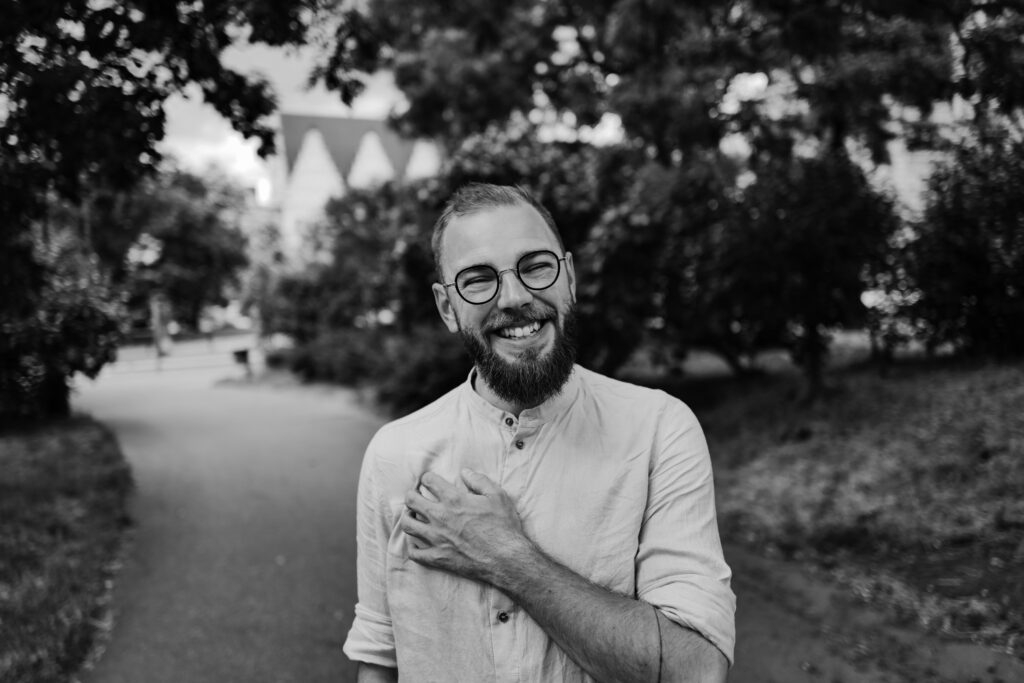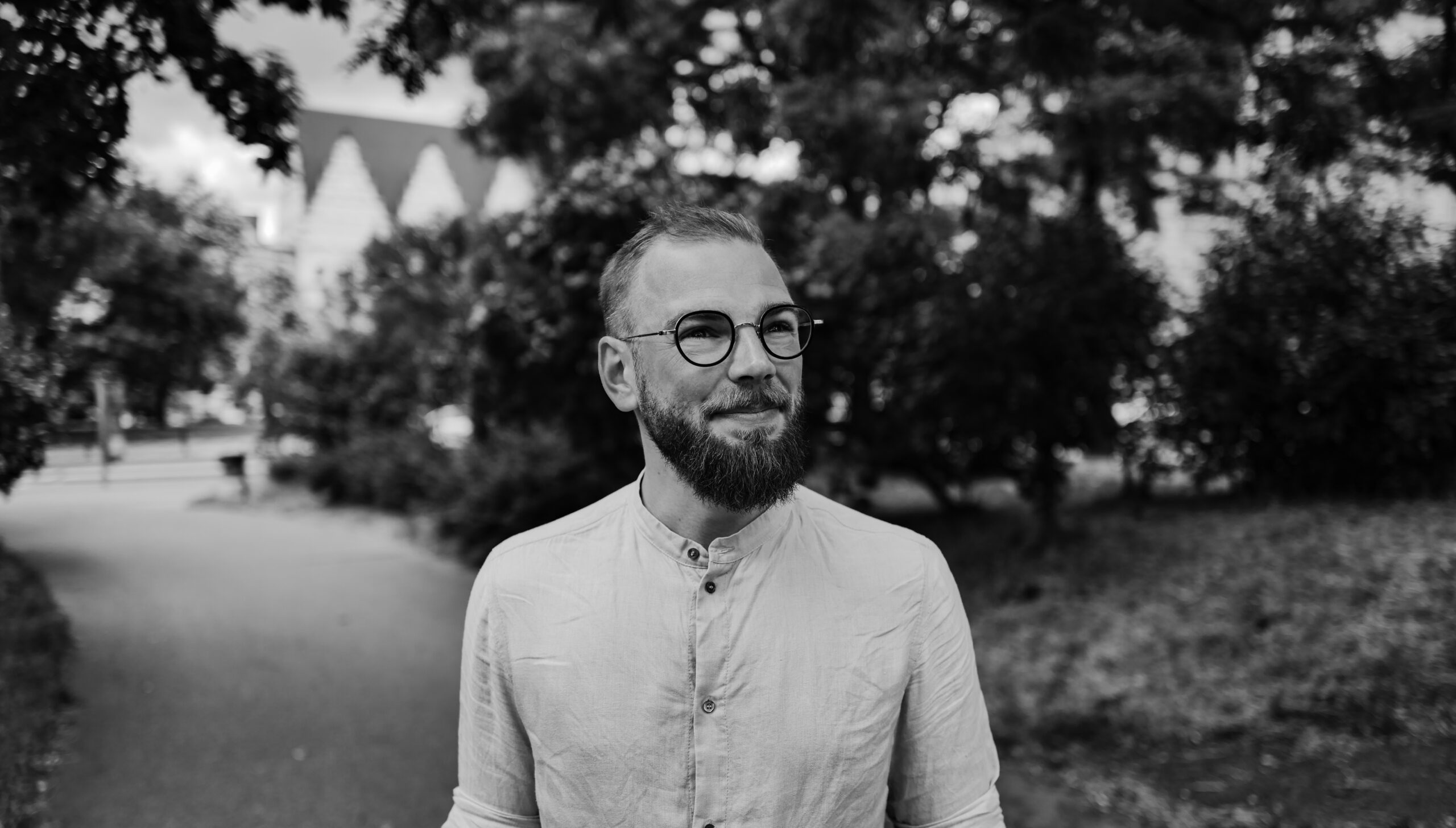How can you define PTSD?
PTSD means that a person experiences stress following a trauma that has happened to them. There are many symptoms that one may experience when suffering from PTSD. Clinically speaking, the symptoms should last for at least a month after the trauma, at which point they can be defined as PTSD.
PTSD = post-traumatic stress disorder
What are the main symptoms of PTSD?
There is a wide range of them, and they differ depending on whether it is a child or an adult. It can be anxiety, panic attacks, nightmares or an increased level of fear. Also more emotional and sensitive reactions to certain events or, on the other hand, it can be the opposite – an apathy or depression. The variety of symptoms does not necessarily define PTSD. The diagnosis is made when symptoms that are a normal reaction to trauma prevail over a long period of time due to specific situations.
Do you think people who fled the war and started a new life in another country can be exposed to PTSD as well?
Even moving to another house or another place in general is a significant event that would strongly affect your life, and it could potentially be traumatic. For example, when I was a child, my family and I moved from Germany to the Czech Republic. It was at a time when I was in the 4th grade. All my friends and my whole life were in Germany. I had to go to a new school, make new friends, and yes, it was traumatic to a certain extent. And that’s what affected me. If you take that event and put it in the context of fleeing a war zone and leaving everything you’ve ever known, that obviously makes it even more impactful. For better or worse, starting a new life is always very difficult. It depends on the person, but such a huge change in life can be made easier if you change your habits, especially the bad ones. It also relates to how well a person’s coping mechanisms are developed. We are social creatures, so even loners need those who can support them.

What are “adverse childhood experiences” (ACEs)?
They are experiences during the ages 0-17 that can potentially be traumatic, and a lot of research has been done on them. It’s not necessary for all adverse experiences to be traumatic, and certainly not all coping with trauma needs to develop into PTSD.
What are some of the possible consequences of PTSD?
Depending on how the disorder is treated, a wide range of outcomes is possible. Leaving PTSD untreated, similarly to depression and other mental health disorders, is always risky and can make your life very difficult. Although symptoms may improve over time seemingly on their own, consulting a mental health professional is always a good idea. It all depends on how much it is interfering with your life. If you are experiencing anxiety, nightmares, depressive episodes, or depression, it will likely only get worse.
Can PTSD turn into depression?
One of the symptoms of PTSD is depression. When a person experiences normal stress, it is often accompanied by rumination, anxiety and depressive thinking. Clinical depression is one of the worst outcomes of coping with constant stress. PTSD can develop into depression, but it can also manifest itself through depression. It is both a symptom and a potential mental health problem.
To prevent their children from developing PTSD, what do parents need to look out for?
In the case of children, the situation may differ. Children with PTSD symptoms can avoid all social contacts. They may even lose skills learnt earlier, or they might degenerate at certain stages of their development. This can also lead to physical or mental distress, including suicidal thoughts.
How is PTSD related to abuse?
One of the main causes of PTSD among children is sexual or physical abuse. If the child is still in a close relationship with the perpetrator, the rate of PTSD occurrence is higher. According to a horrifying statistic up to 100 % of kids who witness parental murder or sexual abuse will develop PTSD.
Is it possible for soldiers on the front line to cope with PTSD or will this psychological trauma stay with them for the rest of their lives?
I can give you an example with American soldiers. The APA (American Psychiatric Association) have started diagnosing and officially researching PTSD after the Vietnam war. Apparently symptoms have been recorded in a variety of ways throughout history, but the Vietnam war was sort of the turning point. Thanks to this and all the following research, we know more about it and can treat it better. But again, it depends on the individual. Obviously, those people who have had multiple exposures to war through active participation in it have a higher chance of developing PTSD.

Can you think of any other examples from the past?
We can go back to the events of World War II. They can probably be linked to how our parents were raised by a strict father who lived through those horrific events. Substance abuse, beatings, and other consequences came later. I can’t even picture what someone on the front lines must go through. To some extent, despite being a mental health specialist myself, I can only imagine how much can mental health be disrupted during war conflicts.
Mindfulness is one of the popular techniques that, by combining psychotherapy and meditation, contribute to a fuller experience of the present moment. Does mindfulness help people affected by war? Read more in our article.
Would you give any advices on how to communicate properly with people suffering from PTSD?
I don’t think there is some kind of rule that fits everyone. PTSD and all those mental health disorders can manifest themselves in different ways. In general, I would recommend openness, tolerance, and support. That’s the only thing you can do. If people suffering from any mental disorder don’t want help, it will be very difficult for you as an outsider to help them or reach out to them. Some people will simply not allow you to help them. The only advice I can give is not to take things personally, don’t be pushy and offer these people the unconditional support and love they may need. The important thing is that we as humans work through problems daily. But sometimes the other person doesn’t need us to solve their problems, they just want us to listen. It is also better to use the phrase “I am trying to understand” or “I can imagine” instead of “I understand”, no matter how comforting it may seem.
Are you in need of psychological help?
Psychological help guide in the Czech Republic for Ukrainians

Benedikt Říčný
psychotherapist and mindfulness teacher
Benedikt got his Bachelor’s degree at the Palacky University in Olomouc, after which he went to study abroad. First, he completed a Master’s programme in Health and Social Psychology in Maastricht, Netherlands. Afterwards, Benedikt went on to get another Master‘s degree in Mindfulness Based Interventions in Dublin, Ireland. He specialises in Acceptance & Commitment Therapy (ACT) and Focused Acceptance and Commitment Therapy (FACT). Furthermore, he offers Mindfulness Based Stress Reduction (MBSR) & Mindfulness Based Cognitive Therapy (MBCT) courses. Benedikt Říčný teaches mindfulness in Prague through his counseling center Here and Now.
